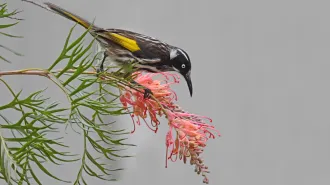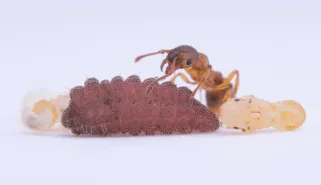When researchers spiff up a male starling’s courtship by delivering some extra bouquets to his mate on his behalf, the couple tends to produce more sons than usual.
Biologists have puzzled in recent decades over whether animals switch their son-to-daughter ratios in response to such factors as the availability of food, the mother’s health, and the father’s sex appeal. Vicente Polo of the National Museum of Natural Sciences in Madrid, and his colleagues noticed that two populations of spotless starlings in central Spain consistently produce only two male offspring for every three females.
A quirk of the starlings’ courtship offered a chance to see whether that behavior alone could affect that ratio. Before a female spotless starling lays eggs, her mate brings bits of wild mint, lavender, and other herbs to the nest. She inspects them but then pitches all the foliage overboard.
In a 2-year experiment, the researchers delivered extra plant sprigs to some starling nests but not to others. The starling pairs that were left to their own devices continued to have son-poor egg clutches, Polo and his colleagues say in the Sept. 22 Proceedings of the Royal Society of London B. The herb-enhanced pairs, however, had roughly equal percentages of sons and daughters. Just how the extra greenery triggers females to adjust the gender ratio of her offspring remains unknown.






